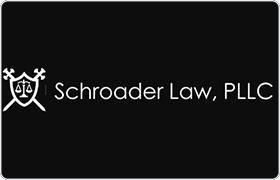La Grande Juvenile Law Lawyer, Washington, page 5
Sponsored Law Firm
-
 x
x

Click For More Info:
-
Schroader Law, PLLC
1105 Tacoma Ave S Tacoma, WA 98402» view mapCriminal Defense Exceptional Legal Service
Schroader Law, PLLC offers superior service from start to finish. Attorney Schroader is a knowledgeable lawyer offering comprehensive legal advice with realistic expectations.
800-916-9671
Kristen L Bishopp
Dispute Resolution, Estate, Family Law, Juvenile Law
Status: In Good Standing Licensed: 22 Years
Brandi E. Yergeau
Juvenile Law, Wills, Estate Planning, Family Law
Status: In Good Standing Licensed: 9 Years
James Barry Feldman
Federal, Juvenile Law, White Collar Crime, Criminal, Administrative Law
Status: In Good Standing
Christopher L Stamos
Litigation, Family Law, Juvenile Law, Criminal
Status: Deceased Licensed: 52 Years
David Joseph Lousteau
Traffic, Juvenile Law, Civil Rights, Animal Bite
Status: In Good Standing Licensed: 30 Years
Stephen H. Hassett
Administrative Law, Juvenile Law, State Government, Securities Regulation
Status: Inactive Licensed: 39 Years
Pier Petersen
Juvenile Law, Federal Appellate Practice, Criminal, Civil Rights
Status: In Good Standing Licensed: 15 Years
 Dennis Schroader Tacoma, WA
Dennis Schroader Tacoma, WA Practice AreasExpertise
Practice AreasExpertise
